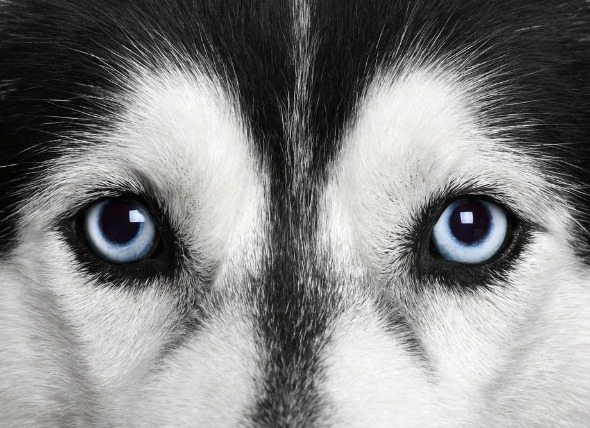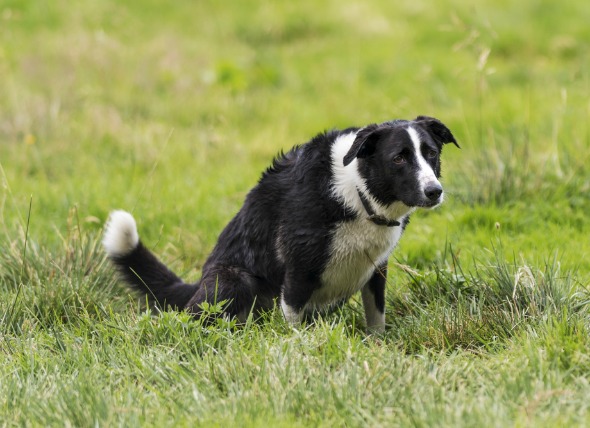

Giardiasis refers to an intestinal infection that is caused by the protozoan parasite giardia, which is the most common intestinal parasite that is found in humans. Dogs develop the infection by ingesting infectious offspring (cysts) that are shed in another animal's feces. The contamination can be from direct or indirect contact with the infected cysts. The organisms, once ingested, make their way into the intestine, often causing diarrhea. The treatment is typically performed on an outpatient basis with a good prognosis.
The condition or disease described in this medical article can affect both dogs and cats. If you would like to learn more about how this disease affects cats, please visit this page in the PetMD health library.
Symptoms are more visible in younger animals than in older animals and can be either sudden (acute), temporary (transient), non-continuous (intermittent) , or ongoing (chronic) in nature. In some cases, dogs will exhibit diarrhea that is soft, frothy, greasy, and with a strong, awful odor or excessive mucus.
Recommended Online Pharmacy: Get a Veterinary Diet for Sensitive Stomach at Pet360.com
One of the most common causes of the parasitic infection is the ingestion of infected fecal material, as the cysts are shed in animal feces. The most common cause of transmission is actually waterborne, as the parasite prefers the cool and moist environment. Up to 50 percent of young puppies will develop this intestinal infection, and up to 100 percent of dogs housed in kennels will develop it due to the massive exposure and closely shared living spaces.
Your vet will want to rule out other possibilities for the intestinal infection such as improper digestion (maldigestion), unabsorbed nutrients (malabsorption), or inflammatory bowel disease (IBD) prior to recommending a treatment option. In cats, your vet will want to differentiate between giardia and other primary causes of large bowel diarrhea. The organism is primarily detected in the feces. A fecal smear is normally sufficient to test for their presence, although it is possible to have a false positive.
Treatment is typically done on an outpatient basis unless the dog has become sick and weak. Prescription drugs along with bathing are combined to reduce the likelihood of repeat infection and to remove the parasite from the dog's body. Repeat fecal exams are often required to confirm that the infection has been removed, as an ongoing (chronic) infection can be debilitating for the animal.
It is important to observe for signs of dehydration, especially in younger animals. Administering the prescribed medication and taking the animal back in for examination are also important in a successful recovery.
Since one of the highest incidences of the infection spreading is in a kennel, seek places that offer private spaces for pets in order to avoid contamination from the other animals.
 Magnesium Deficiency in Dogs
Hypomagnesemia in Dogs
Magnesium is second only t
Magnesium Deficiency in Dogs
Hypomagnesemia in Dogs
Magnesium is second only t
 Corneal Disease (Inherited) in Dogs
Corneal Dystrophies in Dogs
Corneal dystrophy is
Corneal Disease (Inherited) in Dogs
Corneal Dystrophies in Dogs
Corneal dystrophy is
 Tick Paralysis in Dogs
Tick Bite Paralysis in Dogs
Ticks act as carriers
Tick Paralysis in Dogs
Tick Bite Paralysis in Dogs
Ticks act as carriers
 Estrus Symptoms after Spaying in Dogs
Ovarian Remnant Syndrome in Dogs
Surgical removal
Estrus Symptoms after Spaying in Dogs
Ovarian Remnant Syndrome in Dogs
Surgical removal
 Posterior Displacement of the Bladder in Dogs
Pelvic Bladder in Dogs
The term "pelvic blad
Posterior Displacement of the Bladder in Dogs
Pelvic Bladder in Dogs
The term "pelvic blad
Copyright © 2005-2016 Pet Information All Rights Reserved
Contact us: www162date@outlook.com